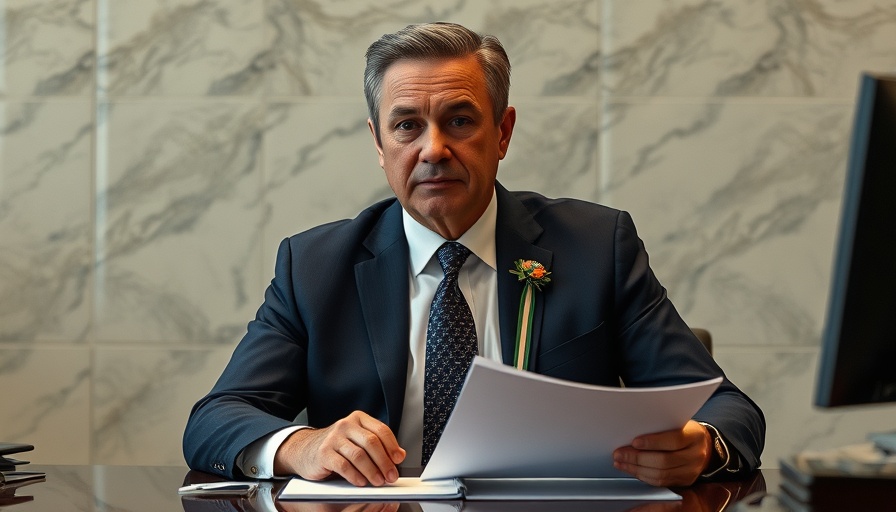
Tragic Shift: The Fall of Roman Starovoyt
The abrupt and shocking death of Roman Starovoyt, Russia's former transport minister, marks a significant moment in the current political climate of the country. Found dead mere hours after his dismissal by President Vladimir Putin, Starovoyt's apparent suicide raises questions about the pressures faced by officials in a highly unsettling time. Just before his death, Russian airports experienced severe disruptions due to drone threats from Ukraine, further complicating Starovoyt's already tumultuous position.
The Context of His Dismissal
Starovoyt had been in his role for just over a year, a time during which he saw significant challenges, not just in operational efficiency but also in fostering diplomatic relations amidst ongoing conflict. His unexpected termination suggests possible governmental turmoil, particularly as travel chaos continued to plague Russia following multiple drone threats. This situation builds on concerns over leadership accountability and the weight of wartime decision-making, especially in an environment increasingly influenced by external pressures.
The Broader Implications of Leadership Pressure
Starovoyt’s death serves as a stark reminder of the physical and psychological burdens leaders face in high-stakes environments. Within the context of an escalating war in Ukraine, the ramifications of his death could unfold beyond personal tragedy—signaling a warning to others in governance about the potential fallout of public positions during crises. The response to his passing—in political, social, and media spheres—will likely highlight the precarious balance between duty and mental health in tumultuous times.
Reflection on Ukraine's Ongoing Struggles
The backdrop of Starovoyt's demise coincides with increasing civilian casualties in Ukraine, as reported by Ukrainian officials. The relentless barrage of attacks—including a recent onslaught involving over 100 drones—is creating a humanitarian crisis that extends far beyond the immediate geopolitical implications. The continuous conflict puts immense pressure on regional leaders, magnifying the importance of clear decision-making and transparency.
Societal Responses and International Reactions
As news of his death spreads, reactions can be expected from both domestic and international figures. Politicians, analysts, and citizens alike may take a moment to reflect on the consequences of political dynamics in autocratic regimes. The handling of the Starovoyt situation by the Russian government will inevitably draw scrutiny, particularly concerning mental health issues stemming from political pressures.
Future Examination of Mental Health in Politics
Starovoyt’s passing may lead to deeper discussions on the need for support systems for political figures dealing with high-pressure scenarios. In political environments characterized by turbulence, awareness of mental health challenges becomes increasingly crucial. The tragic event can serve as a launchpad for initiatives aimed at mental wellness within governmental roles, highlighting the necessity of fostering supportive environments for those in leadership.
Concluding Thoughts on Leadership and Wellbeing
As we reflect on the loss of Roman Starovoyt, the intersections between mental health, political pressure, and social accountability warrant greater attention. Understanding the human elements behind political leadership can offer invaluable lessons for current and future officials everywhere. To ensure that officials like Starovoyt receive the necessary support, discussions around mental health must not only take center stage but also prompt actionable insights that could redefine governance.
 Add Row
Add Row  Add
Add 




 Add Row
Add Row  Add
Add 

Write A Comment